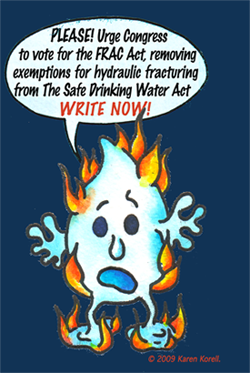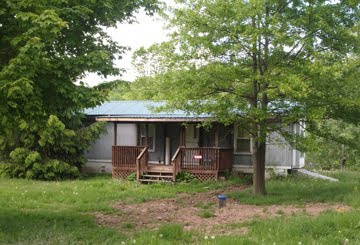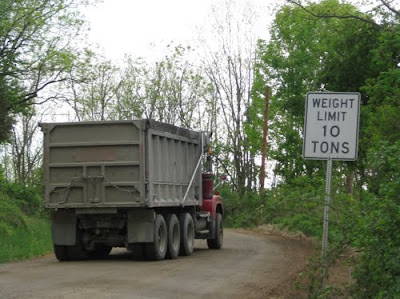A BLUEPRINT FOR YOUR COUNTY!
Calling on the Governor and Legislature of New York State to Ban Hydraulic Fracturing Pending Further Independent Scientific Assessments to Determine the Risks, Greenhouse Gas Emissions, and Social and Economic Costs Associated With Hydraulic Fracturing, and In Support of A.10490/S.7592 WHEREAS, on September 30, 2009,the NYS Department of Environmental Conservation issued a Draft Generic Environmental Impact Statement (DSGEIS) on high volume, slickwater hydraulic fracturing (HVSWHF) with horizontal drilling as proposed for the Marcellus Shale, and more than 14,000 comments on the dSGEIS were submitted, many pointing out significant defects and a reliance on incomplete or flawed studies, and
WHEREAS, New Yorkers' concerns include questions about the ability of the NYS Department of Environmental Conservation, with its current staffing levels and its proposed regulations, to protect our natural resources and prevent permanent damage to our environment, and
WHEREAS, recent disasters in West Virginia's coal mines and at the drilling rig in the Gulf of Mexico highlight the dangers inherent in extractive mining, with particular concern about the possible role of methane (the main component in natural gas) in these events, and
WHEREAS, the Tompkins County Legislature has passed resolutions stating its concerns about gas drilling on December 2, 2008 (Resolution No. 252-08), May 19, 2009 (Resolution No. 84-09), and December 15, 2009 (Resolution No. 250-09), and
WHEREAS, based on experience in other states where this drilling has been underway for years, the concerns include but are not limited to: air pollution (ground level ozone and smog) at and near drilling sites; threats to groundwater and surface water supplies from accidents on the surface, as well as subsurface failures of casings and the hydrofracking process itself; depletion and degradation of New York's lakes, rivers, streams, and wetlands; long-term consequences from infusion of potentially toxic chemicals into the ground; dangers from drill cuttings and flowback water, which may be unsuitable and unsafe for disposal in New York's landfills and wastewater treatment plants; deleterious effects of noise and light from 24/7 drilling on the natural habitat of our region and our residents' health and quality of life; significant damage to roads and bridges, resulting in loss of mobility and economic activity even if drilling companies eventually rebuild the damaged infrastructure; fragmentation of our landscape, with loss of vital habitat for wildlife and significant increase in “edge” habitats which stimulate growth of invasive species; damage to existing economic sectors, including agriculture, hunting and fishing, tourism, and higher education;social disruption, including increase in crime rates and demand for emergency medical services, and greater disparity between high- and low-income households;economic costs to residents and local governments, including higher inflation, increased pressure on housing and consequent homelessness, and precipitous drop in property values; and
WHEREAS, in addition to these concerns, methane (“natural” gas) is 72 times more potent than carbon dioxide in heating the planet according to the Intergovernmental Panel on Climate Change (2007). Therefore when all greenhouse gas emissions related to HVSWHF are calculated, including emissions from extraction, distribution, and use, natural gas is likely not “cleaner” than other fossil fuels and may be more damaging than coal; and
WHEREAS, rigorous scientific investigations of these issues are just beginning, including a study of the full life-cycle emissions of shale gas, the social and economic costs and benefits of the industry, and the federal Environmental Protection Agency's study of potential relationships between hydraulic fracturing and water resources; and
WHEREAS, New York State has acknowledged the dangerous potential for negative impacts with its determination that individual environmental assessments will be required for any wells in the New York City and Syracuse watersheds, and
WHEREAS, New York State has so far not committed itself to a course of action with respect to shale gas drilling in the Marcellus Shale or the Utica Shale, and
WHEREAS, in April 2010 companion bills (A.10490/S.7592) were introduced in the NYS Legislature to establish a moratorium on hydraulic fracturing for natural gas or oil until 120 days after the EPA issues its report on the effects of hydrofracturing on water quality and public health. The moratorium will sunset 120 days after the issuance of a new Environmental Protection Agency report, which is intended to allow the state agencies and state residents the opportunity to review and make use of the new Environmental Protection Agency report, now therefore be it
RESOLVED, on recommendation of the Planning, Development, and Environmental Quality Committee, That the Tompkins County Legislature hereby urges New York State to ban HVSWHF operations pending further independent scientific assessments, including the EPA study, research on the life-cycle greenhouse gas emissions of shale gas, and the social and economic impacts of the industry; and, be it further
RESOLVED, That the Tompkins County Legislature hereby supports passage of A.10490/S.7592 (Englebright/Addabbo, attached) titled “An act to establish a moratorium upon conducting hydraulic fracturing pending the issuance of a report thereon by the federal Environmental Protection Agency”; and be it further
RESOLVED, That at the very least, the same standards should be applied to all of New York State that the DEC has indicated it will apply to the New York City and Syracuse watersheds, and be it further
RESOLVED, That copies of this resolution will be sent to Governor David A. Paterson, Congressman Michael Arcuri, Congressman Maurice Hinchey, Assembly Speaker Sheldon Silver, Senate Leader John Sampson, NYS Health Commissioner Richard Daines, DEC Commissioner Peter Grannis, NYS Dept. of Agriculture & Markets Commissioner Patrick Hooker, the NYS Association of Counties, State Senators James Seward, George Winner, Michael Nozzolio, Antoine Thompson, Joseph Addabbo, Darrel Aubertine, and George Maziarz; Assemblymembers Barbara Lifton, Kevin Cahill, Steve Englebright, Robert Sweeney, and James Brennan; and Attorney General Andrew Cuomo.
DEMAND ACCOUNTABILITY!




































